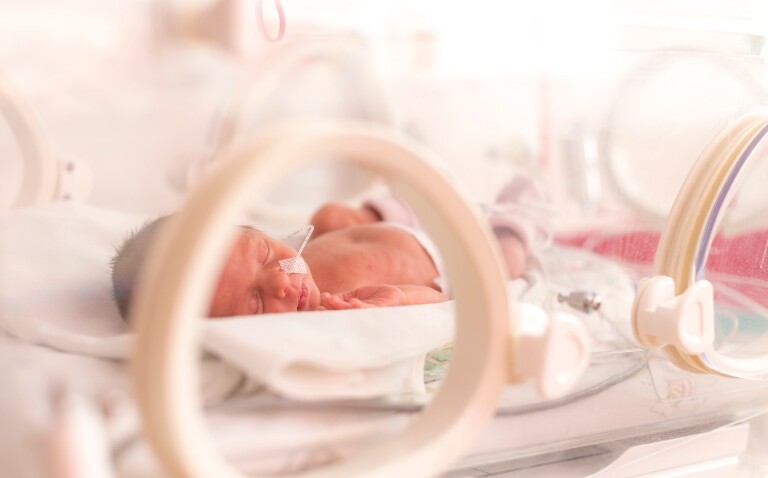Vulnerable premature babies who need extra protection against respiratory syncytial virus (RSV) are set to receive a long-lasting single injection of nirsevimab, NHS England has said as it announces a new immunisation programme.
Administered during ongoing care by a specialist neonatal team, nirsevimab will replace the monthly injections of palivizumab previously offered to some babies.
Available in England from September, the single injection can provide effective protection for the six-month duration of a typical RSV season, NHS England said.
Nirsevimab is a long-acting monoclonal antibody and supplies antibodies against RSV, rather than encouraging the body’s own immune system to produce them, as is the case with the existing vaccination programme. It works by binding long-term to the RSV fusion (F) protein.
Clinical trial data suggests nirsevimab offers more than 80% protection against the virus, compared to 55% protection for palivizumab.
The injection will be offered seasonally to eligible high-risk infants and young children with complex heart, lung or weakened immune system conditions.
Dr Conall Watson, consultant epidemiologist at the UK Health Security Agency said: ‘This new NHS nirsevimab immunisation programme will offer really important protection for very premature babies born before they can be protected by mum’s antenatal vaccination.
‘UKHSA has been working closely with [the Joint Committee on Vaccination and Immunisation] and the NHS to provide evidence in support of this programme and we are delighted to see this launch ahead of winter 2025.’
Safety and tolerability of nirsevimab
The nirsevimab rollout is based on the results of the phase 2/3, randomised, double-blind, palivizumab-controlled MEDLEY trial.
A total of 918 preterm infants and infants with congenital heart disease and/or chronic lung disease of prematurity who were entering their first RSV season and were eligible to receive palivizumab were included.
They were randomised to receive a single 50mg (in infants weighing less than 5kg) or 100mg (in infants weighing 5kg or more) intramuscular injection of nirsevimab or palivizumab.
Safety was assessed by monitoring the occurrence of treatment emergent adverse events and treatment emergent serious adverse events for 360 days post-dose. The incidence of adverse events was similar across treatment groups and cohorts and the safety profile of nirsevimab was similar to that of palivizumab.
At day 151, serum levels of nirsevimab were similar to those reported in the MELODY trial, which assessed nirsevimab in healthy late-preterm and term infants.
The results illustrated that nirsevimab helps protect infants against RSV during their their first season with a single dose.
Reducing hospital admissions
Babies born prematurely have a high risk of contracting RSV in their first winter, when their own immunity is low, with NHS England citing that premature babies are three times more likely to need hospital admission due to RSV, and 10 times more likely to need intensive care, compared to full-term babies.
NHS England also noted that 30,000 children under the age of five are hospitalised with RSV, and it causes around 30 infant deaths each year. It estimates that if 95% of eligible infants receive nirsevimab, there could be nearly 350 fewer hospital admissions, including in paediatric intensive care units, this year.
It is expected that health systems in Scotland, Wales and Northern Ireland will also offer nirsevimab from this autumn, meaning that around 9,000 babies and infants in the UK could benefit annually.
In 2024, the UK became the first country in the world to have a national RSV vaccination programme to protect both newborns – via maternal vaccination during pregnancy – and older adults against the virus.
Earlier this year, England’s RSV vaccination programme was found to have achieved a ‘significant’ reduction in hospital admissions among older people.
This month, updated advice from the Medicines and Healthcare products Regulatory Agency urged healthcare professionals to be alert to a small increased risk of Guillain-Barré syndrome following RSV vaccination in adults aged 60 years and older. It stressed that there is currently no evidence of an increased risk of Guillain-Barré syndrome in pregnant women following RSV vaccination.










